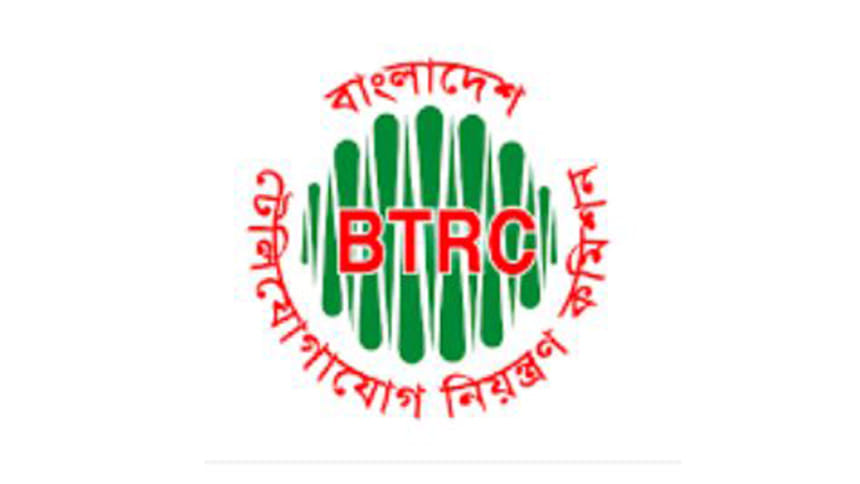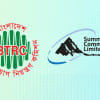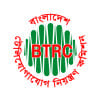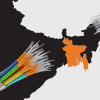Draft telecom policy keeps door open for monopoly

The Bangladesh Telecommunication Regulatory Commission's (BTRC) draft policy to reform its complex licensing regime arrives with bold promises — streamlining processes, encouraging competition, and attracting foreign investment.
Yet, beneath the surface, certain clauses lack clarity and may safeguard existing market inequalities, empower dominant players, sideline local entrepreneurs, and, in some cases, discourage foreign ownership, said experts.
At the core of the proposed reforms is the consolidation of the licensing structure in the telecommunications sector — where there are over 20 types of licences — into three broad categories: National Infrastructure & Connectivity Service Provider (NICSP), International Connectivity Service Provider (ICSP), and Access Network Service Provider (ANSP).
However, despite its aim to "promote local entrepreneurship by fostering fair competition," the draft guidelines place no limitations on foreign partners acquiring ownership stakes in any other BTRC licensees, which may end up opening the door to cross-ownership and foreign control across all segments — without offering similar leverage to local entities.
Experts warn that this imbalance could lead to anti-competitive consolidation, policy loopholes, and further erosion of domestic participation in a sector vital to national digital sovereignty.
For instance, Axiata Group, which owns Robi Axiata; Telenor, which holds a majority stake in Grameenphone; and Veon, owner of Banglalink, will be eligible to simultaneously hold a stake in licensees from all three categories.
BTRC Chairman Md Emdad ul Bari said the policy had been designed this way to attract traceable foreign investment.
As an example, he cited Axiata Group's investment in edotco Bangladesh despite its existing stake in Robi Axiata.
However, experts have warned that this move could lead to discrimination, discourage local entrepreneurship, and potentially result in monopolistic practices.
Notably, this provision contradicts a clause in the draft itself, which prohibits ANSPs from holding ICSP licences.
Abu Nazam M Tanveer Hossain, a telecom policy expert, said, "In the absence of strict cross-ownership restrictions, dominant players may exploit their market power in one segment to suppress competition in others. A clear separation between service layers is essential to prevent anti-competitive practices. Allowing foreign ownership across multiple layers of licensing undermines this principle."
He also argued that the policy's allowance of up to 49 percent foreign ownership in the ICSP category, 70 percent in NICSP, and 100 percent in ANSP could ultimately stifle foreign investment.
Such inconsistency risks enabling regulatory arbitrage and discouraging financially and technically capable international firms from entering the market.
"To create a level playing field and attract long-term, sustainable foreign investment, the policy should consider removing ownership caps entirely and ensure that equity stakes genuinely reflect foreign capital — not local loans disguised as equity infusions," Hossain said.
Interestingly, the 70 percent foreign investment cap under the NICSP category aligns with the current foreign ownership structure of Summit Communications, the country's largest national transmission service provider, which holds most of the key licences in the telecommunications sector.
Last year, Summit Communications sold 70 percent of its shares to UAE-based Global Energies and Mauritius-based Sequoia Infra Tech for Tk 170.5 crore.
Axiata Group's stake in edotco also matches the ownership ratio proposed for this category of licence.
BTRC officials, however, claimed this was a mere coincidence.
One commendable proposal in the draft policy is the phasing out of outdated intermediaries such as operators of Internet Gateways (IIG), Interconnection Exchanges (ICX), National Internet Exchanges (NIX), and International Gateways (IGW).
The proposed ANSP licence will consolidate mobile and fixed-line services into two sub-categories: Cellular Mobile Service for operators using technologies like GSM, 5G, and future evolutions; and Fixed Telecom Service for wired or wireless broadband providers.
These licensees will manage last-mile connectivity, offer bundled voice, data, and digital services, and share passive infrastructure such as towers and fibre, though spectrum sharing will require BTRC approval.
Existing mobile operators, ISPs, and Public Switched Telephone Network providers will migrate to these categories, with fixed-line operators barred from holding mobile licences to prevent market dominance.
However, the policy's suggestion to phase out these intermediaries only upon licence expiry could create delays and regulatory loopholes, allowing dominant players to retain multiple licences across categories.
For instance, Summit Communications and Fiber@Home both hold NTTN licences, valid until 2039, alongside International Terrestrial Cable (ITC) licences. This overlap creates confusion as to whether they will continue operating across both categories.
Another contentious issue arises from a provision allowing mobile operators to combine radio and wired access technologies to offer enterprise solutions.
This may mean that mobile operators will be allowed to deploy fibre from their towers directly to routers placed within business premises — capturing a significant share of the most lucrative segment of the broadband market, traditionally served by fixed-line providers.
Md Emdadul Hoque, president of the Internet Service Providers Association of Bangladesh, warned that if the new policy permits mobile network operators (MNOs) to offer last-mile connectivity using radio or cable under the guise of "enterprise solutions," it could directly conflict with the existing fixed broadband licensing framework.
"Therefore, we propose the following clarification," he added. "If BTRC authorises MNOs to deploy last-mile infrastructure, this should be explicitly stated in a separate clause, making it clear that such deployment is limited strictly to MNOs' internal infrastructure needs, such as base transceiver station interconnections."
However, Shahed Alam, chief corporate and regulatory officer at Robi Axiata, dismissed those objections as "baseless and misconceived."
He argued that MNOs already provide connectivity solutions under the scope of their existing licences. The draft policy, he noted, merely clarifies an existing practice.
BTRC Chairman Bari reaffirmed the regulator's foundational principle: wired services will be provided by broadband operators, while wireless services will fall under mobile operators.
He said the local entrepreneurship-driven broadband service sector would be kept highly protected, with no foreign investment allowed.
"There will be a clarification on this matter in the final policy," he said.
However, he acknowledged that as technology evolves, the boundaries between wired and wireless segments will inevitably blur.
He added that BTRC is currently reviewing the feedback received on the draft policy and will incorporate necessary revisions before submitting it to the ministry for final approval.

 For all latest news, follow The Daily Star's Google News channel.
For all latest news, follow The Daily Star's Google News channel. 








Comments